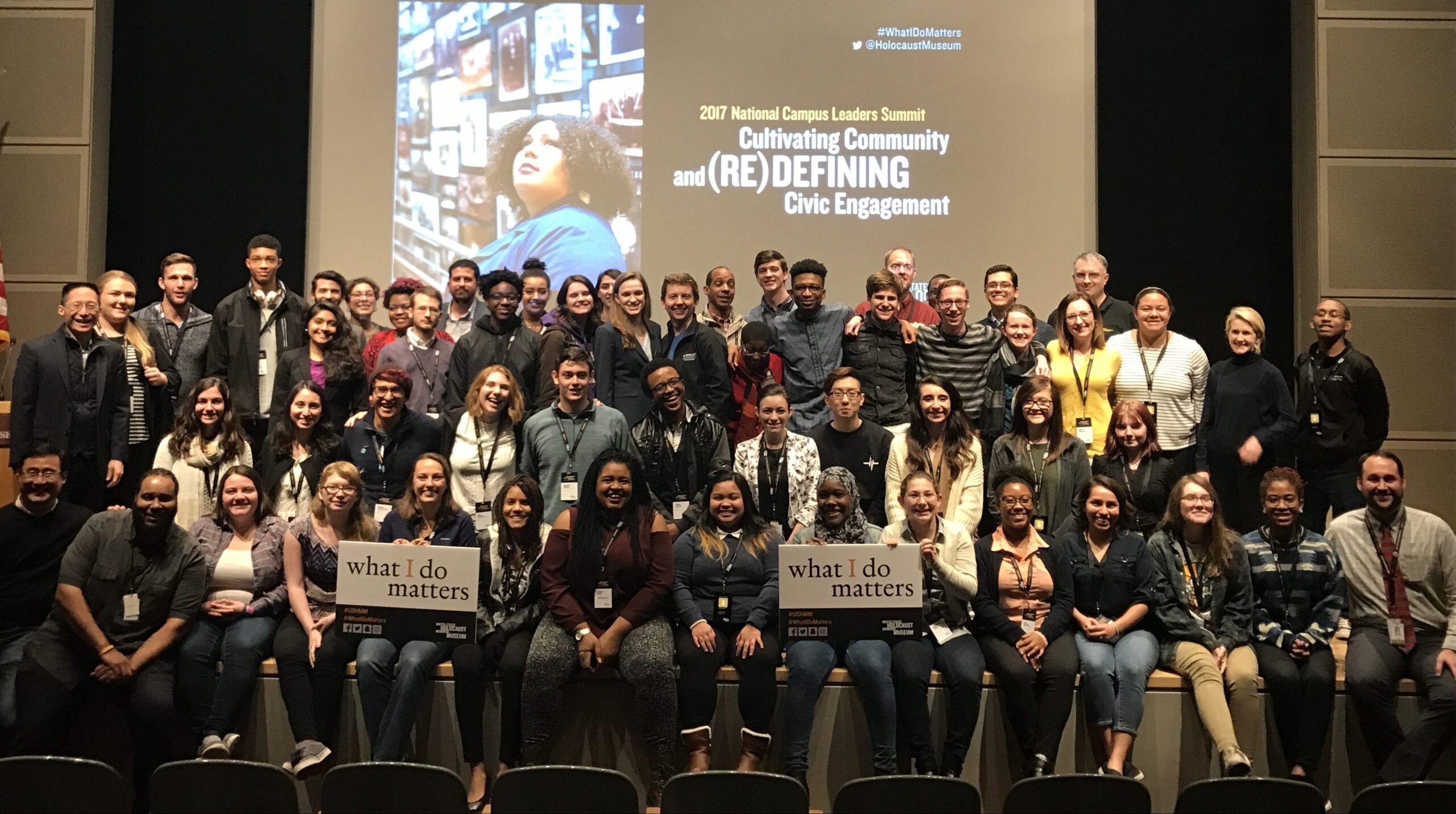A group of five UMBC students recently made the trip to Washington, D.C. to serve as leaders and collaborators during the 2017 National Campus Leaders Summit. The event, held at the United States Holocaust Memorial Museum, was centered around the themes of cultivating community and redefining civic engagement.
UMBC was consulted during the planning of the summit after David Hoffman, assistant director of student life for civic agency, Corrine Janet, coordinator of student life for leadership, and Emily Melluso ’17, interdisciplinary studies, made a connection with the summit’s principal organizer at last year’s Civic Learning and Democratic Engagement meeting.
The leadership summit was co-presented with Citizen University, and a description of the program provided by the Holocaust Memorial Museum explains that the event was designed to bring together students to explore how, “In these turbulent times, civic leadership and an understanding of history are more important than ever.” They note, “The Museum is pleased to collaborate with Citizen University and to welcome student leaders and change-makers from ten universities to dive deeply into the history of the Holocaust and explore its relevance for today’s college students.”
Jasir Qiydaar ’18, media and communication studies, is one of the UMBC students who attended the event. He became interested in it after participating in the Imagining America National Conference in Milwaukee last fall.
“I thought having another opportunity to discuss the social issues that affect so many of us with people from other institutions would be valuable,” Qiydaar explains.
The students participated in a two-hour guided tour of the museum and engaged in discussions about the fragility of democracy and the role of civic engagement during the Holocaust. They also examined how the social and psychological dynamics that influenced people’s decisions during the Holocaust can continue to be relevant in the world today.
Qiydaar says that the event served as a powerful learning experience and it provided important historical context for many contemporary issues.
“My key takeaway from the event was a reinforcement for the need for an intersectional approach to solving social problems. The atrocities of the Holocaust were an escalation of Jewish marginalization perpetuated by inaction while their rights were being violated. Today the same issues of ‘othering’ people who are different still exist, and it’s important to understand that this is largely allowed to continue through the inaction of people who aren’t personally affected by it. Collectively people have the power to combat this othering by speaking out against all oppression, especially when it doesn’t harm them personally.”
Qiydaar attended the summit along with Emily Melluso, Andrew Thompson ’19, gender and women’s studies, Hannah Aris ’18, chemical engineering, and Gerardo Herrera-Cortes ’19, visual arts. The other universities that participated in the summit include: Case Western University, Fort Hays State University, George Mason University, Mount St. Mary’s University, New York University, University of Florida, Valdosta State University, Weber State University, and Yale University.
Image: Students from ten universities attended the 2017 National Campus Leaders Summit. Photo courtesy of Corinne Janet.

